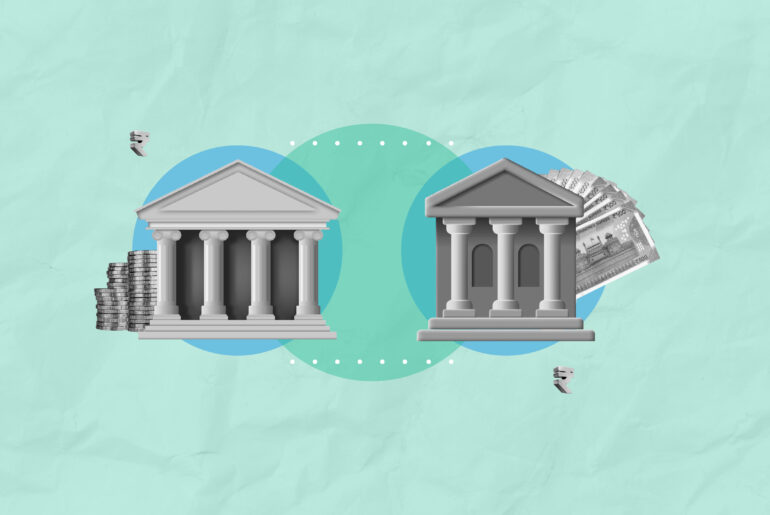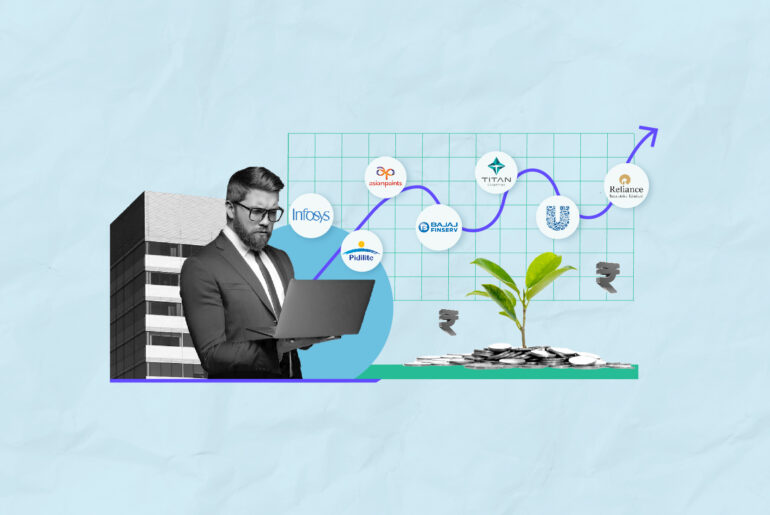Last Updated on May 27, 2022 by Neera Bhardwaj
When the economy is doing well, your investments would yield considerable returns. But, when the market falls, the scene shifts as fixed-income instruments tend to offer lower interest rates, loan EMIs are hiked, and the portfolio begins to flash more red than green. While these downturns do not last long, they can be costly for investors as they put them on the trail of the most dreaded word: recession!
It boils down to the simple idea that an overheated economy contributes to inflation, which eventually leads to a recession! So, as an investor, how can you protect your investment portfolio in such situations? Let’s get this conversation started!
Table of Contents
What is a recession?
During a recession, the economy struggles, people lose their jobs, businesses make fewer sales, and the country’s overall economic output falls. The point at which the economy officially enters a recession is determined by many factors, but that’s a topic for another day. For now, what you need to know is that the leading indicator is a drop in the Gross Domestic Product (GDP) for two consecutive quarters.
The Great Recession of 2008 is a classic example of how recession and markets are intertwined. But how are these great historic events now fueling fears of an impending recession in 2022?
Let’s get to…
The cause
Inflationary pressures, supply chain constraints, an ongoing pandemic, and the recent Russia-Ukraine conflicts have contributed to a costly crisis, implying a significant slowdown in global GDP growth and inflation in 2022. Furthermore, fuel and food prices have risen rapidly, disproportionately affecting the vulnerable populations in low-income countries such as India.
According to the International Monetary Fund (IMF), global growth is expected to slow from 3.6% in 2022-23 to 3.3% post-2023. Inflation projections for 2022 are also predicted to be near 5.7% in advanced economies and 8.7% in emerging economies. Rising commodity prices and broadening price pressures have induced this shift.
Global recessionary trends continue, with the US GDP declining at a 1.4% pace in Q1 of 2022, far below a 1% gain expectations. On the other map, the UK’s GDP fell by 0.1% in March after witnessing an increase of 0% in February. According to JP Morgan analysts, the US economy, as well as the markets of Europe, have a 70% chance of entering a recession.
What should an investor do during a recession?
The warning signs of a predicted recession can be concerning for investors. But the real question is, what can an investor do in such a situation? Read further to find out:
1. Invest in high-quality stocks
On the plus side, a recession pulls the market down, which can be an excellent time to invest in high-quality stocks. This does not imply that you invest in all companies without due diligence. A company with the worst-performing assets is under intense pressure, potentially leading to bankruptcy. A high-quality company has a strong balance sheet, few debts, and the ability to weather the storm. Investors should review the profile and consult with experts before investing.
2. Take advantage of a recovery period
Consider using the recession to your advantage during a recovery period. It is well understood that it does not return to its previous level once the market falls. When the economy improves, so does the market, and this is the path to recovery. This is when the interest rates are lowered, and the market can start seeing positive numbers. The companies with good balance sheets and low debt would have gotten through the recession. Investors need to control their emotions and take expert advice regarding their portfolios until this phase.
3. Buy precious metals
Unlike stocks, precious metals tend to fare well during a financial crisis. Generally, gold and silver are known to hedge against recession. After losing a chunk of their wealth in stock markets, investors look to safeguard what remains and prefer shifting to safer options like metals.
Since the demand for these safe investments during recession increases, the prices follow suit. So, consider investing as per your affordability.
4. Park your funds in real estate
Like most sectors of the economy, recession doesn’t spare the real estate sector either. The 2008 financial crisis is proof. A recession drains the value of housing and commercial properties by making them lacklustre. But there is a hidden opportunity here.
Well, think, why did you want to invest first? Wasn’t it to earn returns? Experts say real estate is one of the best investments during a recession. Why, you ask? Because properties sell at low prices during a recession. Therefore, seizing the opportunity would reap sizable benefits when the real estate sector starts to recover.
5. Stay invested in stocks
Stock markets hit rock bottom during an economic downturn, which may discourage you from buying stocks in a recession. But experts believe that a recession is an excellent time to buy/hold stocks with a long-term objective and not liquidate stock positions completely. A few sectors thrive even during a downturn and offer decent returns. So what sectors are these?
The ones that produce essentials. Would you go hungry or thirsty and not avail of medical treatment during a recession? Certainly not. You got the answer for which stocks to invest in during a recession. You can scour for stocks in such sectors, evaluate and shortlist them, and pick the best one to invest in.
Alternatively, you may also consider investing in dividend stocks during a recession. The stocks of such companies offer high dividends, which can serve as a passive income during your cash-strapped days. When evaluating dividend stocks during a downturn, consider companies with a healthy balance sheet and a low debt-to-equity ratio.
When buying stocks in a recession, you may use the Tickertape Stock Screener to discover dividend-rich companies by applying the debt-to-equity ratio and other relevant filters.
Once you shortlist stocks based on the filter, you can go to the financials tab of the company and glance through the balance sheet.
What impact will this have on the Indian economy?
Fears of a prolonged recession have emerged, fueled by a sharp increase in inflationary pressures and a slow recovery in demand. However, experts warn that if the global export cycle slows and domestic policy is tightened, India may experience a slowdown rather than a recession in the next 12-18 months as the economy is more dependent on the export side.
Unlike in the United States, the Indian economy is not overheating. Therefore, detecting the wind may be too early. It is, however, always prudent to plan for a rainy day. A wise investment strategy could be to hold on to long-term investments while diversifying your portfolio during the recession. Before investing, consult with your financial advisor!
So, how do you plan to safeguard your investment portfolio in a recession? Let us know in the comments below!
- Select Stocks With Analyst Ratings Filters - Jun 15, 2023
- ITC’s Report Card Is Here! - Jun 8, 2023
- Top 10 Most Popular Stocks on Tickertape - Jun 2, 2023




